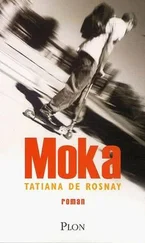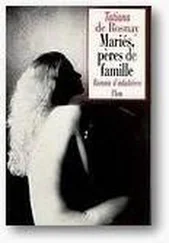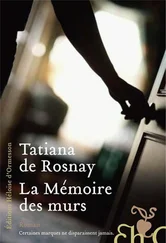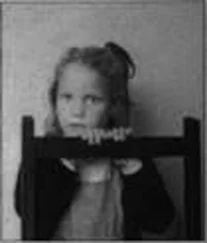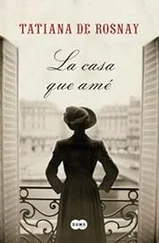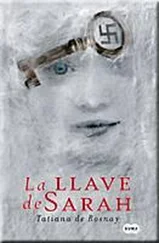I walked slowly through the courtyard. The concierge’s loge would have been here, I thought. It had been transformed years ago into a small apartment. A row of metal mailboxes lined the hallway; there was no longer a concierge who brought mail up every day to each door. Madame Royer, that was her name, Mamé had said. I had read much about concierges and their particular role during the arrests. Most of them had complied with police orders, and some had even gone further, showing the police where certain Jewish families had gone into hiding. Others had plundered vacant apartments and hoarded goods right after the roundup. Only a few, I read, had protected the Jewish families the best they could. I wondered what sort of role Madame Royer had played here. I thought fleetingly of my concierge on the boulevard du Montparnasse; she was my age, and from Portugal, she had not known the war.
I ignored the elevator and walked up the four flights. The workmen were out on their lunch hour. The building was silent. As I opened the front door, I felt something strange engulf me, an unknown sensation of despair and emptiness. I walked to the older part of the apartment, the bit that Bertrand had shown us the other day. This is where it had happened. This is where the men came knocking on that hot July morning, just before dawn.
It seemed to me that everything I had read in the past weeks, everything I had learned about the Vel’ d’Hiv’ came to a head here, in the very place I was about to live in. All the testimonies I had pored over, all the books I had studied, all the survivors and witnesses I had interviewed made me understand, made me see, with an almost unreal clarity, what had happened between the walls that I now touched.
The article I had started to write a couple of days ago was nearly finished. My deadline was coming up. I still had to visit the Loiret camps outside Paris, and Drancy, and I had a meeting scheduled with Franck Lévy, whose association was organizing most of the commemorations for the sixtieth anniversary of the roundup. Soon, my investigation would be over, and I’d be writing about something else.
But now that I knew what had happened here, so close to me, so intimately linked to me, to my life, I felt I had to find out more. My search wasn’t over. I felt I had to know everything. What had happened to the Jewish family living in this place? What were their names? Were there any children? Had anybody come back from the death camps? Was everybody dead?
I wandered through the empty apartment. In one room, the wall was being torn down. Lost in the rubble, I noticed a long deep opening, cleverly hidden behind a panel. It was now partly revealed. It would have made a good hiding place. If these walls could talk… But I didn’t need them to talk. I knew what had happened here. I could see it. The survivors had told me about the hot, still night, the bangs on the doors, the brisk orders, the bus ride through Paris. They had told me about the stinking hell of Vel’ d’Hiv’. The ones who told me were the ones who lived. The ones who got away. The ones who tore off their stars and escaped.
I wondered suddenly if I could cope with this knowledge, if I could live here knowing that in my apartment a family had been arrested and sent on to their probable deaths. How had the Tézacs lived with that? I wondered.
I pulled out my cell phone and called Bertrand. When he saw my number show up, he mumbled, “Meeting.” That was our code for “I’m busy.”
“It’s urgent,” I said.
I heard him murmur something, then his voice came across clearly.
“What’s up, amour?” he said. “Make it quick, I’ve got someone waiting.”
I took a deep breath.
“Bertrand,” I said, “do you know how your grandparents got the rue de Saintonge apartment?”
“No,” he said. “Why?”
“I’ve just been to see Mamé. She told me they moved in during July of ’42. She said the place had been emptied because of a Jewish family arrested during the Vel’ d’Hiv’ roundup.”
Silence.
“So?” asked Bertrand, finally.
I felt my face go hot. My voice echoed out through the empty apartment.
“But doesn’t it bother you that your family moved in, knowing the Jewish people had been arrested? Did they ever tell you about it?”
I could almost hear him shrug in that typical French fashion, the downturn of the mouth, the arched eyebrows.
“No, it doesn’t bother me. I didn’t know, they never told me, but it still doesn’t bother me. I’m sure a lot of Parisians moved into empty apartments in July of ’42, after the roundup. Surely that doesn’t make my family collaborationists, does it?”
His laugh hurt my ears.
“I never said that, Bertrand.”
“You’re getting too heated up about all this, Julia,” he said with a gentler tone. “This happened sixty years ago, you know. There was a world war going on, remember. Tough times for everybody.”
I sighed.
“I just want to know how it happened. I just don’t understand.”
“It’s simple, mon ange. My grandparents had a hard time during the war. The antique shop wasn’t doing well. They were probably relieved to move into a bigger, better place. After all, they had a child. They were young. They were glad to find a roof over their heads. They probably didn’t think twice about the Jewish family.”
“Oh, Bertrand,” I whispered. “How could they not think about that family? How could they not?”
He blew kisses down the phone.
“They didn’t know, I guess. I’ve got to go, amour. See you tonight.”
And he hung up.
I stayed in the apartment for a while, walking down the long corridor, standing in the empty living room, running my palm along the smooth marble mantelpiece, trying to understand, trying not to let my emotions overwhelm me.

WITH RACHEL, SHE HAD made up her mind. They were going to escape. They were going to leave this place. It was that, or die. She knew it. She knew that if she stayed here with the other children, it would be the end. Many of the children were ill. Half a dozen had already died. Once, she had seen a nurse, like the one in the stadium, a woman with a blue veil. One nurse, for so many sick, starving children.
Escaping was their secret. They had not told any of the other children. No one was to guess anything. They were going to escape in broad daylight. They had noticed that during the day, at most times, the policemen hardly paid attention to them. It could be easy and fast. Down behind the sheds, toward the water tower, where the village women had tried to push food through the barbed wire, they had found a small gap in the rolls of wire. Small, but maybe big enough for a child to crawl through.
Some children had already left the camp, surrounded by policemen. She had watched them leave, frail, thin creatures with their shorn heads and ragged clothes. Where were they being taken? Far away? To the mothers and fathers? She didn’t believe that. Rachel didn’t either. If they were all to be taken to the same place, why had the police separated the parents from the children in the first place? Why so much pain, so much suffering, thought the girl. “It’s because they hate us,” Rachel had told her with her deep, hoarse voice. “They hate Jews.” Such hate, thought the girl. Why such hate? She had never hated anyone in her life, except perhaps a teacher, once. A teacher who had severely punished her because she had not learned her lesson. Had she ever wished that woman dead? she pondered. Yes, she had. So maybe that’s how it worked. That’s how all this had happened. Hating people so much that you wanted to kill them. Hating them because they wore a yellow star. It made her shiver. She felt as if all the evil, all the hatred in the world was concentrated right here, stocked up all around her, in the policemen’s hard faces, in their indifference, their disdain. And outside the camp, did everybody hate Jews, too? Is this what her life was going to be about from now on?
Читать дальше


